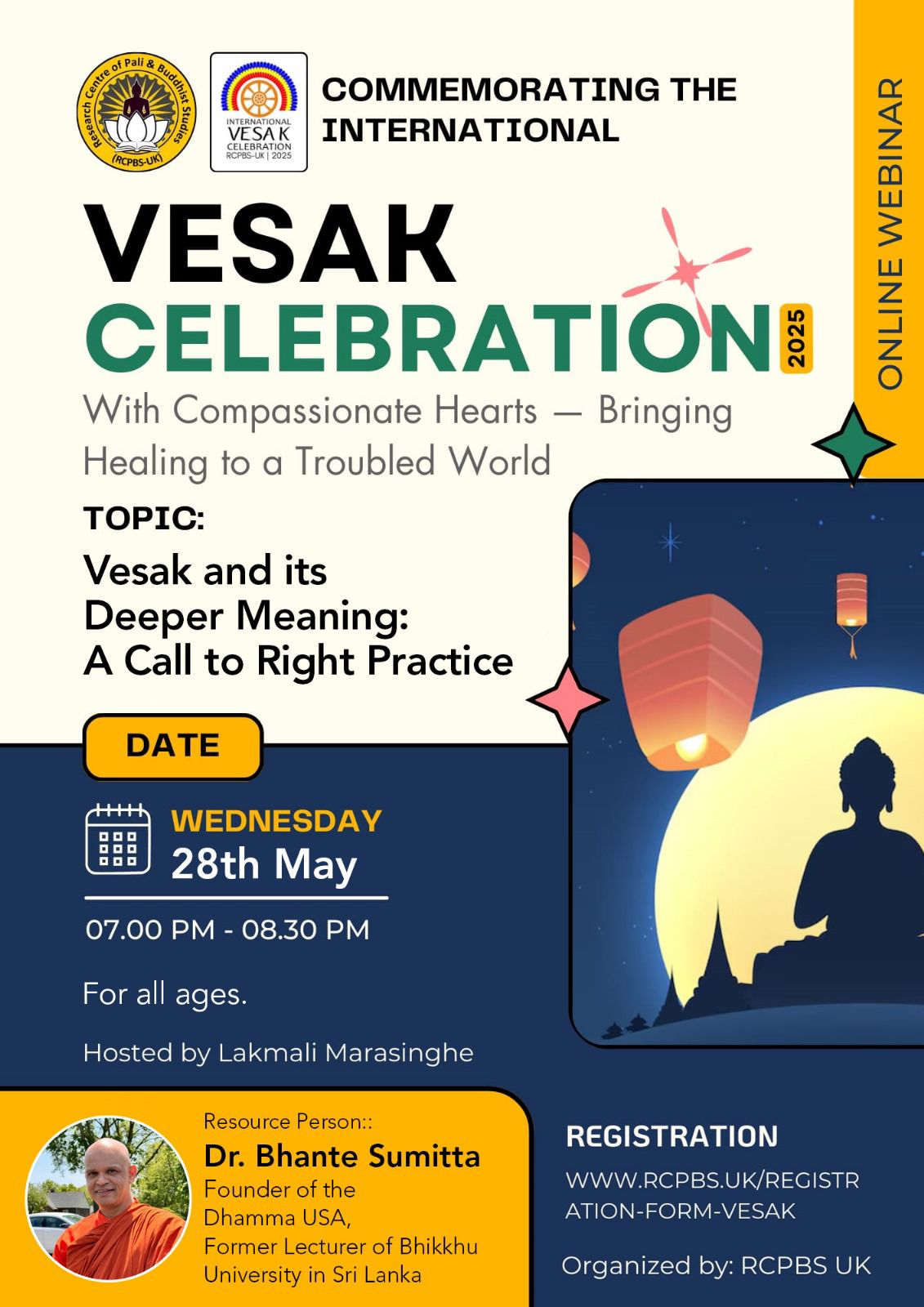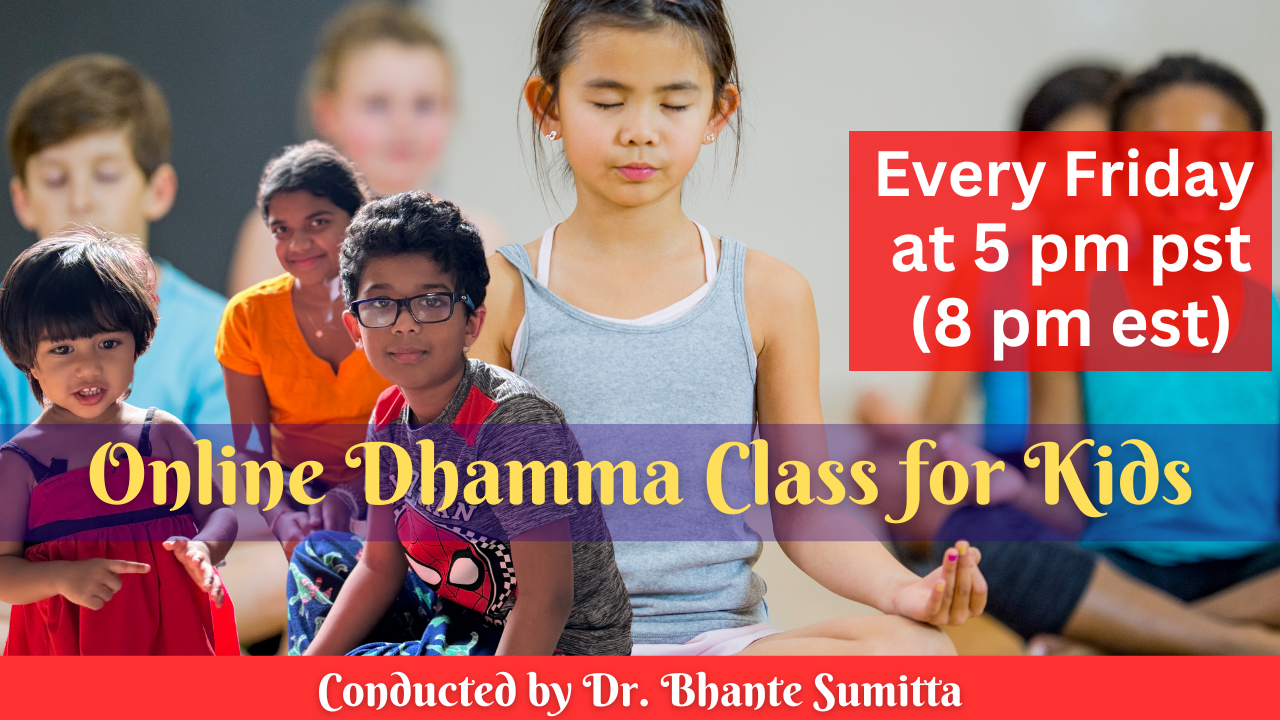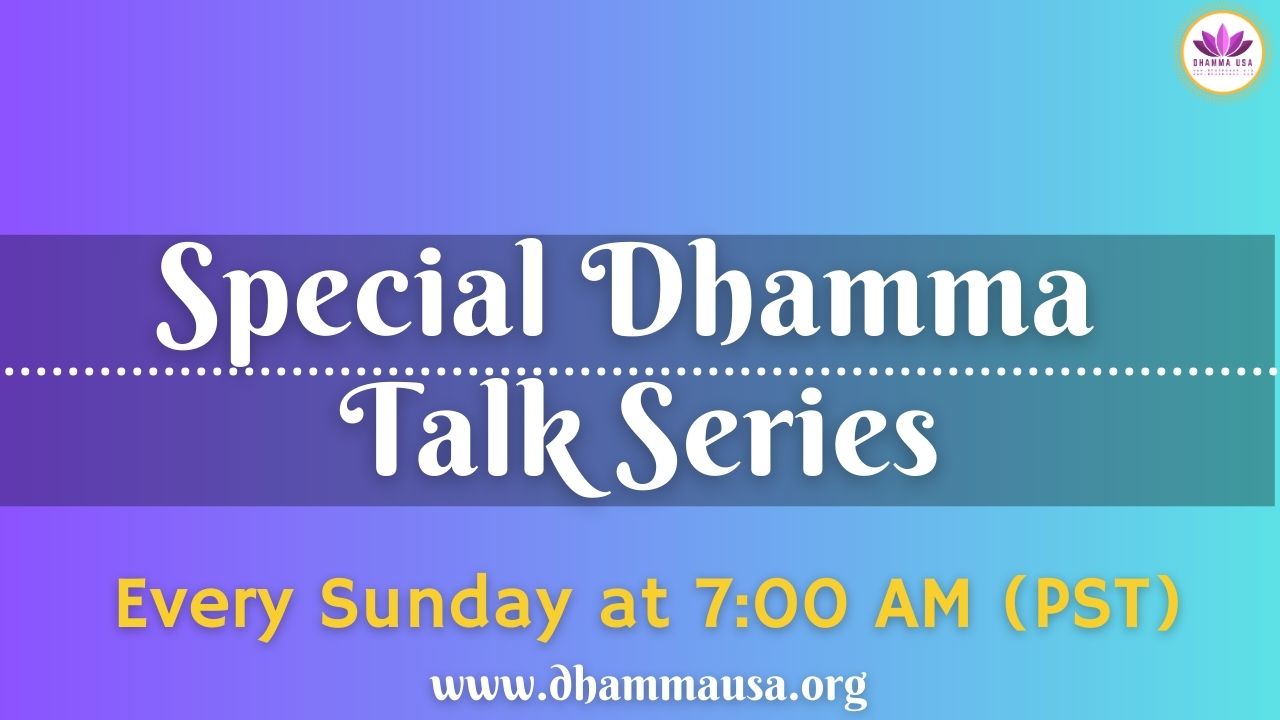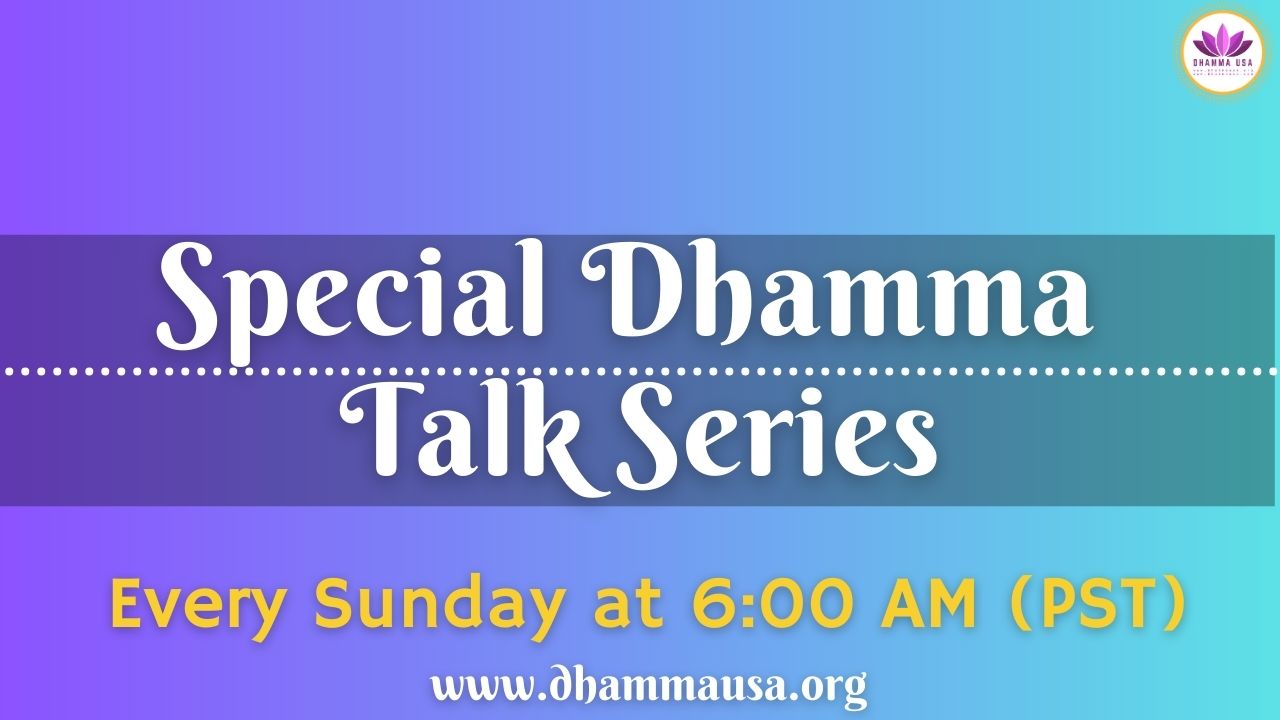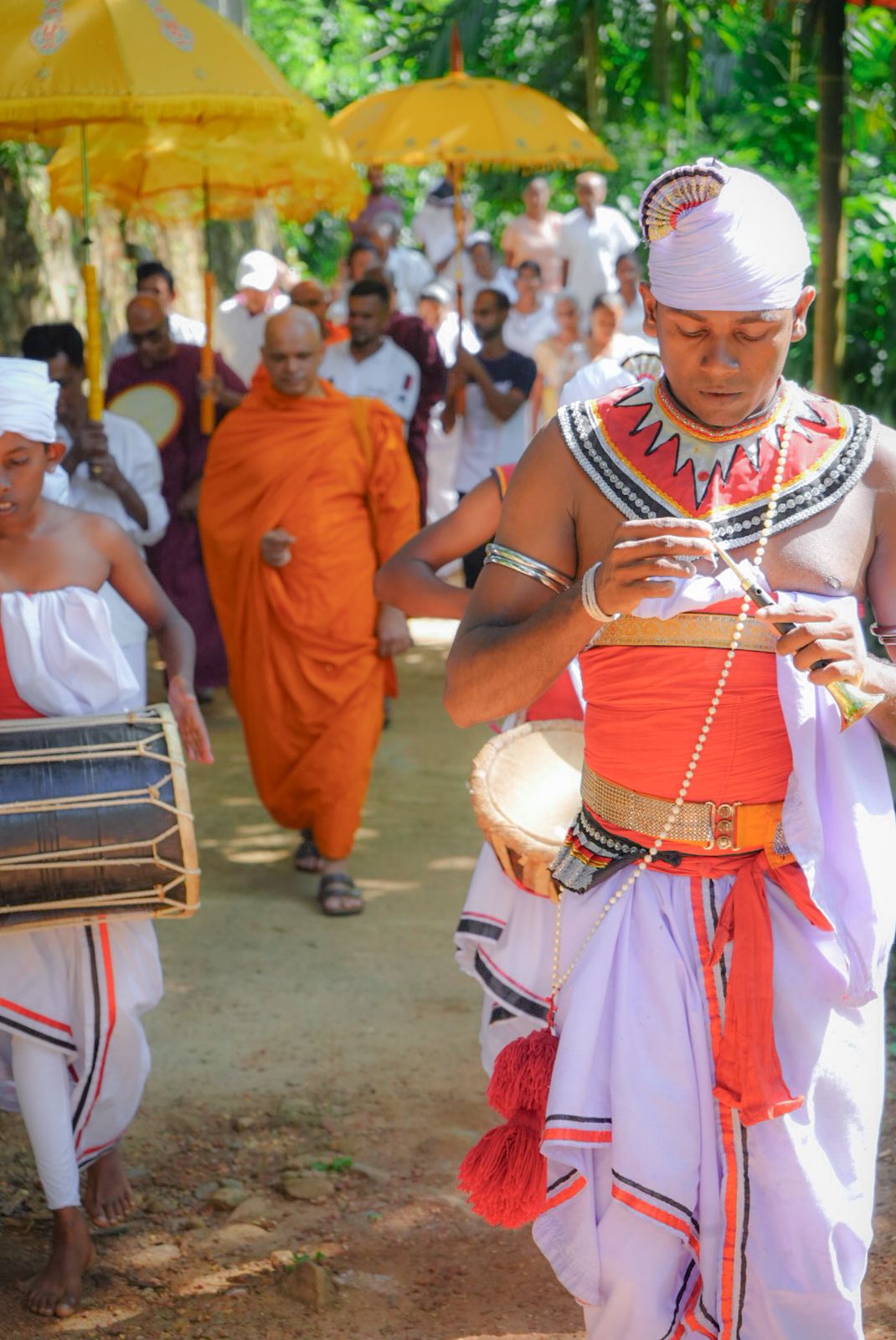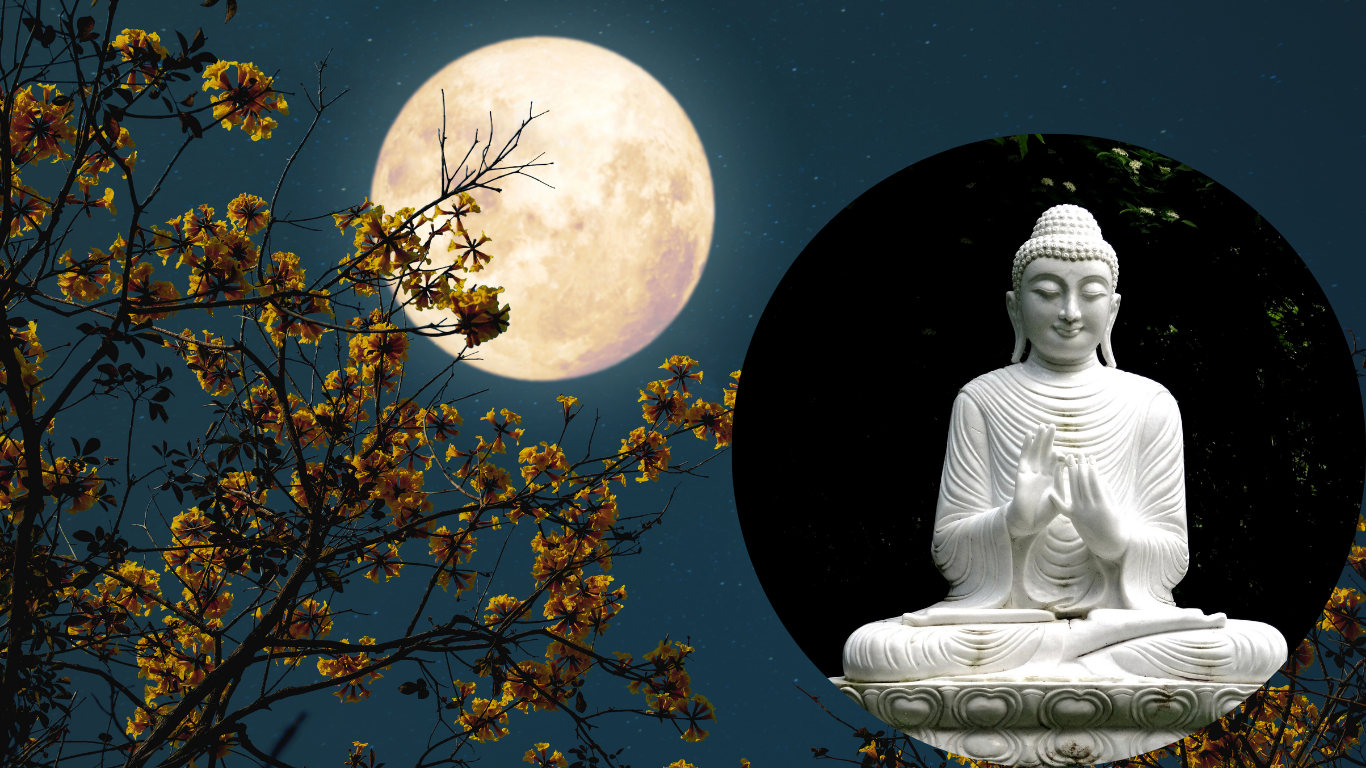Commemorating the International Vesak Celebration 2025 With Compassionate Hearts — Bringing Healing to a Troubled World Join us for a special Online Webinar in celebration of Vesak, the most sacred day for millions of Buddhists around the world. This year’s theme reflects our collective aspiration to bring healing, compassion, and wisdom to a world in […]
NEWS
Buddha Vandanā – Pali & English Translation
VANDANĀ – Homage Homage to Him, the Blessed One, the Exalted One, the Fully Enlightened One! TI-SARAṆA – Three Refuges I go to the Buddha as my refuge. I go to the Dhamma as my refuge. I go to the Sangha as my refuge. For the second time, I go to the Buddha as my […]
The Enlightened One – Dhammapada – Arahanta Vagga | Dr. Bhante Sumitta | #110
By Nivitigala Sumitta (Bhante Sumitta) Sunday Dhamma Talks – November 3, 2024 The Enlightened One – Dhammapada – Arahanta Vagga | Dr. Bhante Sumitta | #110 We are thrilled to invite you to the 110th session of our Sunday Dhamma Talks series on November 3, 2024. This week, we will explore the profound themes of […]
The Path of the Wise – Dhammapada – Paṇḍita Vagga | Dr. Bhante Sumitta | #109
By Nivitigala Sumitta (Bhante Sumitta) Sunday Dhamma Talks – October 20, 2024 The Path of the Wise – Dhammapada – Paṇḍita Vagga | Dr. Bhante Sumitta | #109 We are thrilled to invite you to the 109th session of our Sunday Dhamma Talks series on October 20, 2024. This week, we will explore the profound […]
Wisdom Over Foolishness – Dhammapada – Bāla Vagga | Dr. Bhante Sumitta | #108
By Nivitigala Sumitta (Bhante Sumitta) Sunday Dhamma Talks – October 13, 2024 Wisdom Over Foolishness – Dhammapada – Bāla Vagga | Dr. Bhante Sumitta | #108 We are thrilled to invite you to the 108th session of our Sunday Dhamma Talks series on October 13, 2024. This week, we will explore the profound themes of […]
Subduing Hatred – AN 5.162-Āghātavinaya Sutta | Ven. Bhikkhu Sugatananda | #107
By Nivitigala Sumitta (Bhante Sumitta) Sunday Dhamma Talks – October 6, 2024 We are thrilled to invite you to the 107th session of our Sunday Dhamma Talks series, taking place on October 6, 2024, at 6:00 AM Pacific Time (PT), 9:00 AM Eastern Time (ET), and 6:30 PM Indian Standard Time (IST). This session is […]
Mahāpajāpatī Gotamī: The Founder of the Bhikkhuni Order
Mahāpajāpatī Gotamī stands as a pivotal figure in the history of Buddhism, known as the founder of the Bhikkhuni Order. As the Buddha’s foster mother and maternal aunt, her journey was marked by profound dedication, compassion, and a steadfast commitment to spiritual liberation. Despite the societal norms of her time, she demonstrated immense courage by advocating for the ordination of women, leading to the establishment of the Bhikkhuni Sangha.
Her life story spans multiple lifetimes, showcasing acts of generosity and service that culminated in her attaining Arahantship. Mahāpajāpatī’s unwavering resolve paved the way for countless women to pursue the path of Dhamma. Her legacy is a testament to the Buddha’s inclusive vision and the transformative power of the Dhamma, highlighting that the potential for enlightenment lies within all, regardless of gender.
Subduing Hatred – AN 5.161-Āghātavinaya Sutta | Ven. Bhikkhu Sugatananda | #104
By Nivitigala Sumitta (Bhante Sumitta) Sunday Dhamma Talks – September 15, 2024 We are thrilled to invite you to the 104th session of our Sunday Dhamma Talks series, taking place on September 15, 2024, at 6:00 AM Pacific Time (PT), 9:00 AM Eastern Time (ET), and 6:30 PM Indian Standard Time (IST). This session is […]
A New Home for a Family in Uda Pebotuwa: A Heartwarming Journey
We are thrilled to share a recent milestone in our Community Care efforts at Dhamma USA. Thanks to the generous support of our donors and volunteers, we have been able to provide a brand new home to a family of six in Uda Pebotuwa, a remote village in Sri Lanka. This family, which includes four […]
Full Moon Day (Uposatha) in Buddhism
In Buddhism, the Full Moon Day, or Uposatha, holds a place of great significance, serving as a time for reflection, spiritual renewal, and community gathering. Observed since the Buddha’s time, the Uposatha is a day dedicated to “the cleansing of the defiled mind,” aiming to foster inner calm and joy. On these days, both lay followers and ordained members of the Sangha intensify their practice, deepen their understanding of the Dhamma, and reaffirm their commitment to the path of spiritual growth.
Full Moon Days are marked by various practices, including meditation, chanting, and listening to Dhamma talks. Lay practitioners often observe the Eight Precepts, while monks and nuns recite the Patimokkha, the monastic code of conduct. The observance of Uposatha days offers a structured opportunity for practitioners to engage in mindful reflection, ethical conduct, and the cultivation of wisdom and compassion, serving as a reminder of the Buddha’s teachings and the shared journey towards enlightenment.

